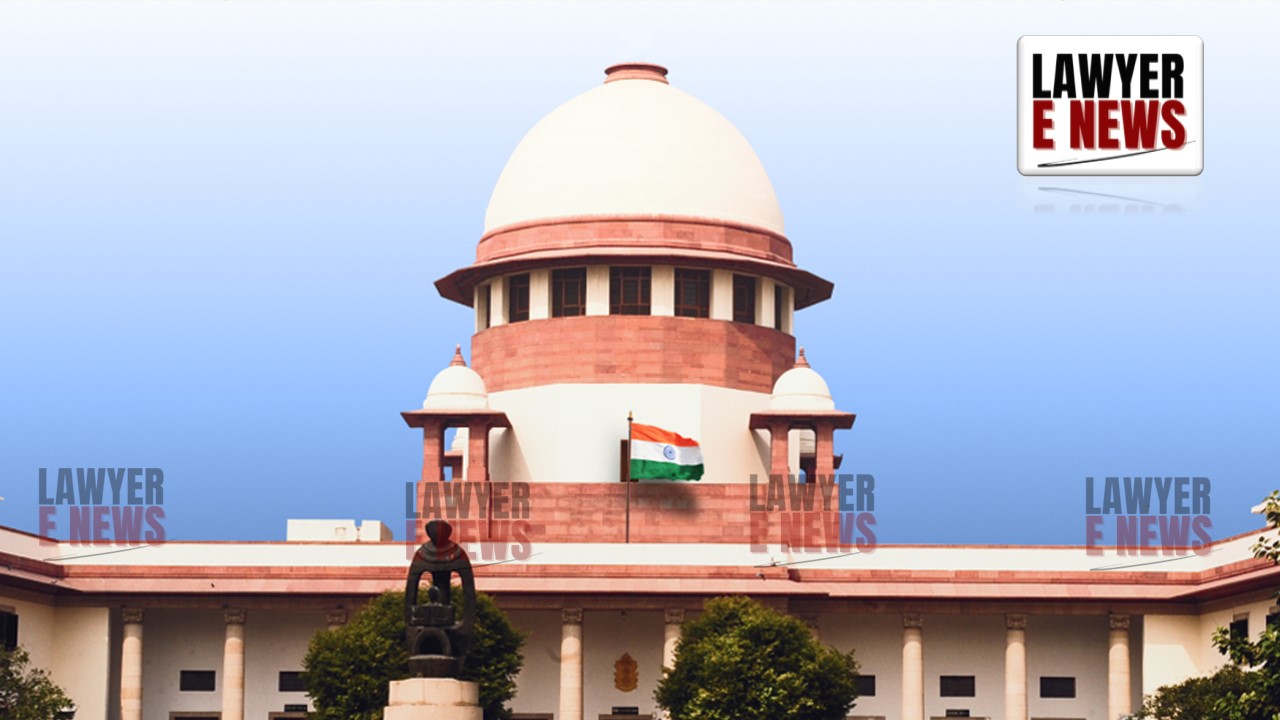-
by Admin
15 February 2026 2:36 AM



The record is silent with respect to the use of any force, apart from bald assertions of mental and physical discomfort caused to the complainant by the appellant -Supreme Court of India. The case, arising from an FIR registered under Sections 354 (outraging modesty of a woman) and 506 (criminal intimidation) of the Indian Penal Code (IPC), addressed the limits of criminal prosecution when allegations are vague and unsupported by substantive evidence. The Court quashed the criminal proceedings against the appellant, holding that they failed to meet the prima facie threshold for prosecution.
The bench, comprising Justices C.T. Ravikumar and Sanjay Karol, ruled that the allegations lacked sufficient material to proceed to trial. The decision reaffirmed the scope of the High Court's powers under Section 482 of the Code of Criminal Procedure (CrPC) to quash criminal proceedings that amount to an abuse of the legal process.
The dispute stemmed from a partnership between the appellant, Naresh Aneja, and the complainant, Ms. Pooja Tankha, in a joint venture named M/s LAJ-IDS Exports Pvt. Ltd., a business dealing in garment exports. The complainant, who was a Director with a minority 25% shareholding, alleged sexual harassment by the appellant’s brother, R.K. Aneja, and accused Naresh Aneja of mentally harassing her and failing to act against the alleged misconduct.
The FIR (No. 1074/2019) was registered on the directions of the Chief Judicial Magistrate, Gautam Buddh Nagar, under Section 156(3) CrPC. A chargesheet followed, finding both the appellant and his brother culpable under Sections 354 and 506 IPC. The appellant moved the Allahabad High Court to quash the proceedings, which declined the plea, citing disputed questions of fact. The appellant then approached the Supreme Court.
Court’s Definition of Modesty: The Court reiterated the definition of modesty in Rupan Deol Bajaj v. K.P.S. Gill (1995) and Major Singh Case (AIR 1967 SC 63), holding that modesty entails actions capable of shocking a woman’s sense of decency. It emphasized that the alleged act must involve criminal force and intent to outrage modesty.
Application to Facts: The complainant's statements under Sections 161 and 164 CrPC failed to disclose direct evidence of criminal force or intent on the part of the appellant. The FIR merely included general and vague allegations of harassment. The Court concluded, “The record is silent with respect to the use of any force, apart from bald assertions of mental and physical discomfort caused to the complainant by the appellant” (Para 12.3).
Legal Standard: The Court, citing Manik Taneja v. State of Karnataka (2015) and Sharif Ahmed v. State of U.P. (2024), observed that criminal intimidation under Section 506 IPC requires a clear intent to cause alarm or compel action through threats.
Court’s Analysis: The complainant’s statements did not demonstrate any threats issued by the appellant with the intent to cause alarm. The Court held that “a mere statement without intention would not attract the offence of criminal intimidation” (Para 13.3).
The Court reiterated that under Section 482 CrPC, High Courts can quash proceedings where allegations fail to disclose a prima facie case or where proceedings are initiated with malafide intent. Citing State of Haryana v. Bhajan Lal (1992) and other precedents, the Court underscored that “vague and unsupported allegations cannot form the basis of a prosecution.”
Details of the Judgment:
Lack of Prima Facie Evidence: The FIR, interim investigation report, and the chargesheet were analyzed in detail. The Court noted that they lacked any corroborative evidence to support the complainant’s allegations. The appellant’s alleged involvement in the offenses was limited to general assertions, with no specific act attributed to him.
Inadmissibility of Section 161 and 164 CrPC Statements: The Court held that statements recorded under Sections 161 and 164 CrPC could not independently establish guilt. Even if considered, the statements failed to disclose any offense by the appellant.
Business Dispute Context: The Court observed that the allegations were likely motivated by an ongoing financial and management dispute in the joint business venture. A preliminary inquiry report had earlier concluded that the allegations of harassment were unsubstantiated and arose from a business dispute.
Limited Applicability of Judgment: The Court clarified that the judgment was confined to the appellant, Naresh Aneja, and did not affect the case against co-accused R.K. Aneja.
The Supreme Court allowed the appeal, quashing the FIR and all related criminal proceedings against Naresh Aneja. The Court emphasized that vague allegations unsupported by material evidence cannot justify the initiation of criminal prosecution. It stated, “Allowing the proceedings to continue would be an abuse of the process of the Court” (Para 16.2).
Mens Rea and Specificity: Criminal charges under Sections 354 and 506 IPC require clear evidence of intent and specific acts attributable to the accused.
Quashing Power of High Courts: The judgment reinforces the principle that High Courts must exercise their inherent powers under Section 482 CrPC judiciously to prevent misuse of the criminal justice system.
Date of Decision: January 2, 2025
